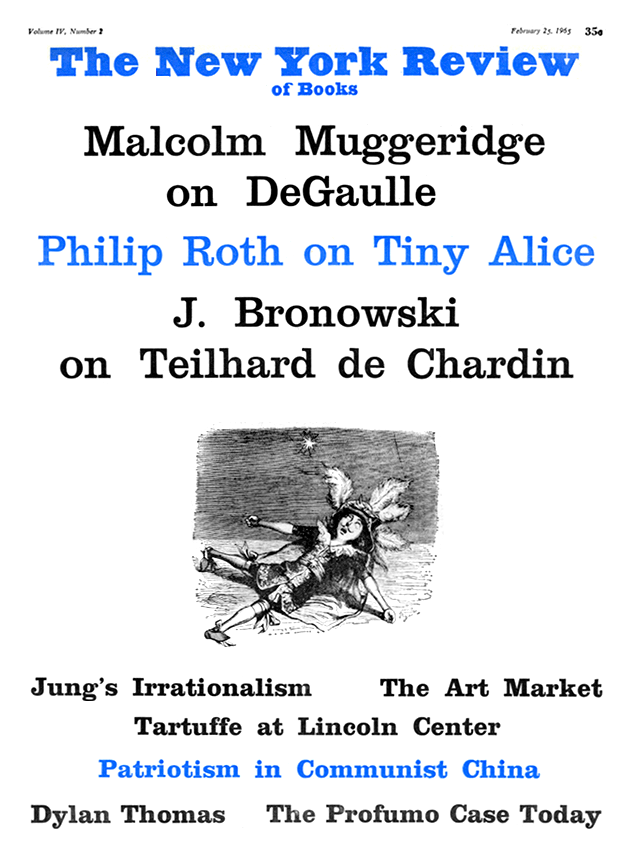In response to:
The Ordeal of George Patton from the December 31, 1964 issue
To the Editors:
In a recently instituted feature, “The Living Language,” in the Times (London) Literary Supplement, Marghanita Laski parried the question “Is there any justification for…the use…in novels of words considered obscene four or five years ago?” thus: “This subject is obviously of potential interest from a literary point of view, but can be usefully discussed only if serious journals (such as your own) are prepared to print such words in obviously serious and relevant contexts.”
You are to be congratulated for printing John Phillips’ unaffected—and obviously serious and relevant—use of the term “fuck-up” as both a noun and verb in his Dec. 31 review of Ladislas Farago’s Patton: Ordeal and Triumph…
Simple English words for our sexual and excremental organs and processes have existed in one form or another throughout the history of the language, and, even though considered obscene (and therefore—inevitably—illegal) have been and are being employed as common usage. Every contemporary English-speaking adult knows these words, whether or not he or she chooses to use them.
In recent years, emboldened by the easing of legal restrictions against their use in relevant context as legitimate English nouns and verbs, opportunistic publishers have encouraged writers to use them also, as often as possible, in their socially “obscene” sense. This deliberate “obscenity” is irritating or just plain boring to mature readers.
The nervous reaction of the literary journals to it has been irritating also. Most literary reviewers and editors seem to feel that they have fulfilled their critical duty if they note (and occasionally quote) the mere appearance of these words in print, without commenting upon the validity of their context or even the grammatical correctness of their usage. Rarely has a reviewer or journalist dared use these words himself as legitimate, basic English. Even more rarely has an editor dared print them in such usage, sans quotes or comment….
When in Phillip’s article one reads about a military fuck-up or someone fucking-up strategically one recognizes immediately the particular frustrating type of situation and occurence the author is describing. True, one experiences a slight jar at encountering these “obscene” words in this context. But the real shock is one of delighted recognition—that flash of complete comprehension one experiences at any unusually apt descriptive word or phrase.
Desmond Arthur
San Francisco
This Issue
February 25, 1965


